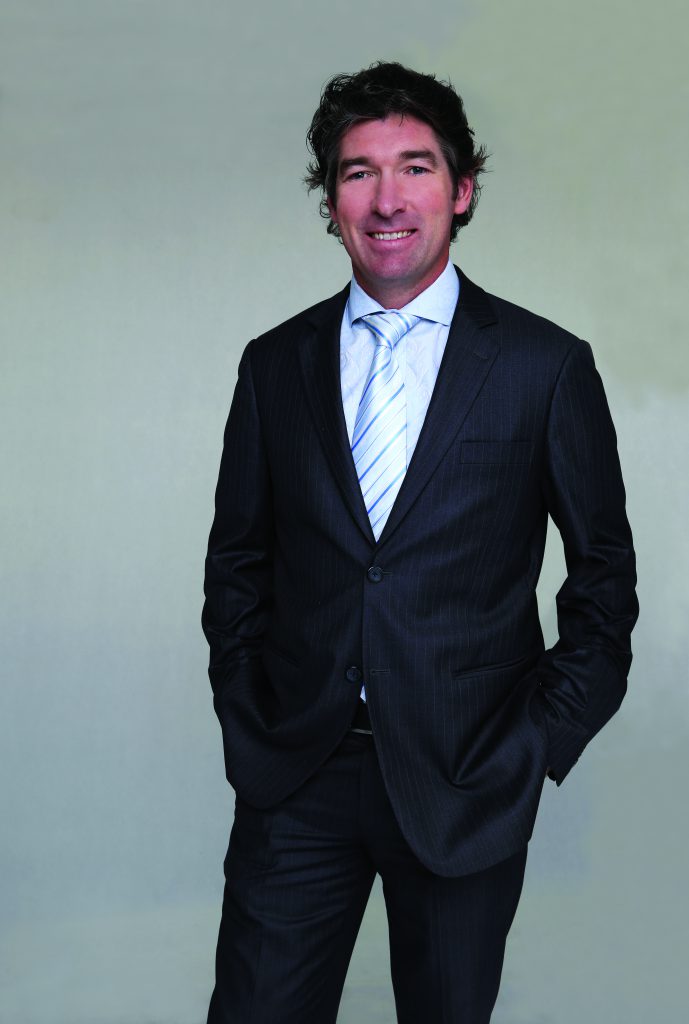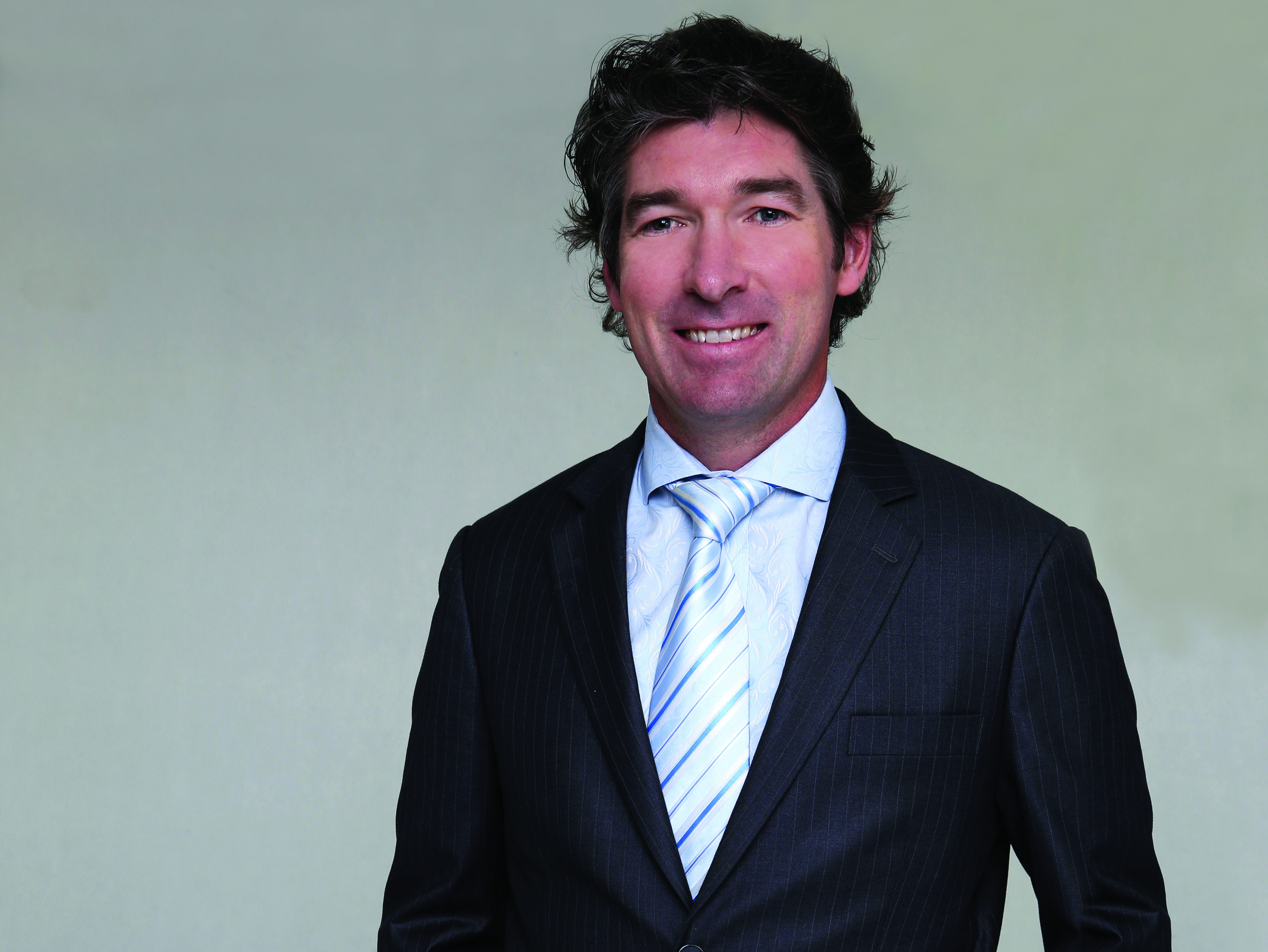We talk to Daniel Dickson, managing director of DMK Australia, about why he will never sell product to consumers online, why the beauty therapist is still integral to the beauty industry, and how professionals can stay ahead in a changing environment.

Do you see the growing presence of beauty emporiums and chemists offering their own expert skincare advice in store as a threat to the salon business?
Absolutely not. In fact, I think that it is a perfecting tiering that as an industry we need to highlight. We should be defining the difference between over-the-counter products, and professional in-clinic skin revision protocols, treatments, and customised formulations verses chemists and emerging beauty emporiums.
The challenge here is that if the marketing dollars and the positioning of the beauty emporiums and chemists are better than that of a professional skincare clinic consumers are often wowed into believing that they are superior or better value.
The challenge lies with the professional skincare clinics to position themselves as results orientated, skin revision clinics and not just a ‘beauty style salon’ that offers the same level of active ingredients as the chemist or beauty emporium.
What, in terms of skills, does the professional beauty therapist have over in-store beauty experts?
Other than formal training at either TAFE, an RTO, or now even university, an in-clinic therapist has thousands and thousands of hours of training under their belt. They also have professional development in the form of industry run workshops, including non-product aligned based training, which many of these beauty store ‘experts’ don’t go through or have exposure to.
Also, in many cases, the in-store ‘expert’ will have expertise only within the silo of their product offering and formulations and do not necessarily look at the function and anatomy of the skin to ascertain how the skin can be revised (even if not a severe condition) on the needs and demands of their customers.
I think that in a professional industry sense, the other thing that sets an in-clinic therapist apart is an opportunity to perform a comprehensive skin consultation and professional results orientated treatment – enhancing both the client’s treatment experience, treatment period and overall experience. Clinics have clients and emporiums/chemists have customers; being a professional therapist means that you get both the time and opportunity to build relationships and showcase skills that in-store ‘experts’ do not necessarily get to do.
Beauty brands selling product online could be seen as another threat to salon business’s bottom line. DMK does not do this. Why did you make this decision?
DMK is strenuously against online selling and will not sell DMK Professional Treatments or Home Prescriptives online.
The reason for this is that you cannot responsibly offer results orientated treatments/products that are consumer self-prescribed in the online sphere when you consider that in many instances consumers have a very limited or superficial understanding of the true causes of their symptoms/condition.
I am persistently against this new trend and from a brand perspective feel that it will be the undoing of many if they choose to call themselves a professional skincare company and they sell online.
I would question the definition of the word ‘professional’, and would pose the question ‘why they are trying to work against the very people [clinic owners and trained therapists] that have currently put them on the map, and made them the success that they have become?’
I have no two doubts in my mind that online selling does directly influence many skin clinics’ bottom lines. Hence, why DMK has taken a very strong stance – having a zero tolerance policy on internet selling on open source internet sites, and moving forward will continue to defend this and keep this as part of the DMK concept.
[My second concern is that the] professional skin therapist requires a professional skin consultation to understand the touch and the feel of the client’s skin, not to mention view the structure and functionality of the skin to make a comprehensive and effective consultation. You cannot do this online.
Have you done anything as a business to help salons keep up with the changing times?
In a clinic capacity, we believe that one of our main roles is to mentor and support clinic owners, managers and therapists to discover and celebrate their full professional potential in this extremely rewarding industry. We are trying to encourage them to have the strength and grow their knowledge to continue to be that professional skin clinic and source of expertise to their clientele.
For years now, DMK have been running a successful series national education roadshows, one in particular being the Professional Performance Workshop or PPW (now in its 4th year). Clinics from all around Australia and New Zealand come to one of our national venues to participate in what is an annual update, which focuses on the latest trends that are influencing change in both conditions, treatments and formulations. Along with marketing, business and education strategies to position them at the forefront of this ever shifting industry.
We have also invested considerably in providing 24/7 online personalised education portal, that along with the complete suite of DMK resources that we offer, is soon to be offering business support, and staff incentives. Not to mention tailored advertising and marketing material.
With the changing environment of in-store beauty experts, social media influencers and online beauty bloggers, what do salon therapists need to do to stay ahead of the game?
I think that social media influencers and beauty bloggers are an imperative part of the growth of our industry because these people are allowing personalised feedback on their experience and their opinion as a consumer for this brand’s treatments or homecare products. In addition, we should all be alert that people are continually judging our performance and our efficacy in a professional industry such as ours.
Ensure that your clinic is a destination clinic that people talk about and those people experiences there is unlike the norm being offering in your community.
Do you have three tips on how a professional beauty therapist can stay relevant?
1. Without sounding repetitious, you need to be a continual lifelong learner. The common thread in all successful people is their passion for knowledge.
2. Remember that you are also a consumer. I would encourage all therapists to experience treatments from their fellow colleagues and other clinics. Once you are on the treatment table with your eyes closed, your awareness is heightened and you will learn through other senses and experiences on how you could better yourself as professional skin therapists.
3. The more you do, the more you do; the less you do, the less you do. If you want to be a professional skin therapist, you need to be doing more skin therapies. Talking to clients regardless of what they booked in for about skin and every client coming through your door should know that you are the skin expert that they should see.

